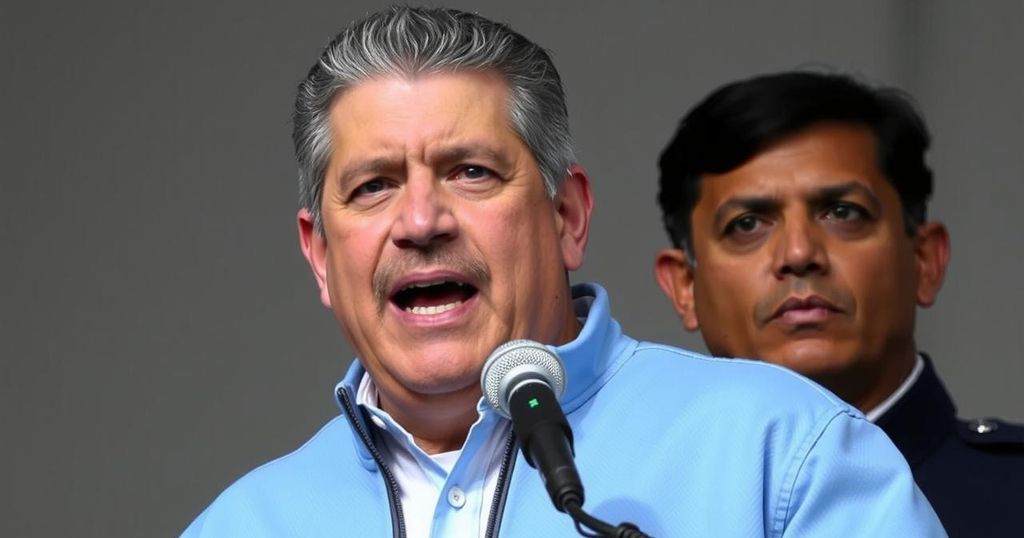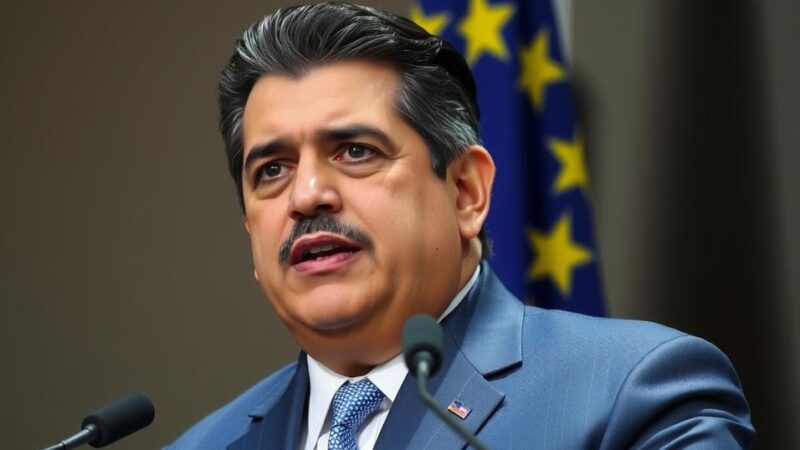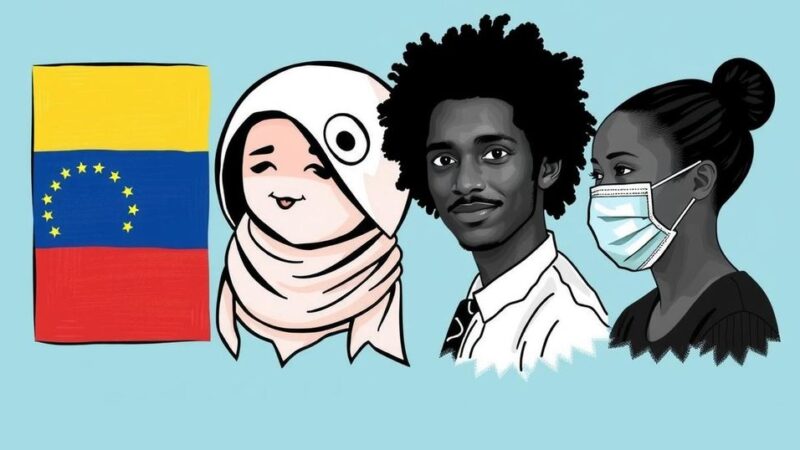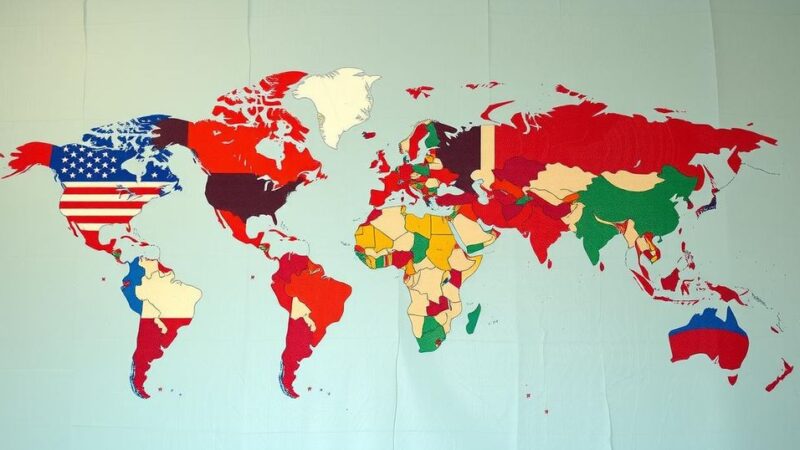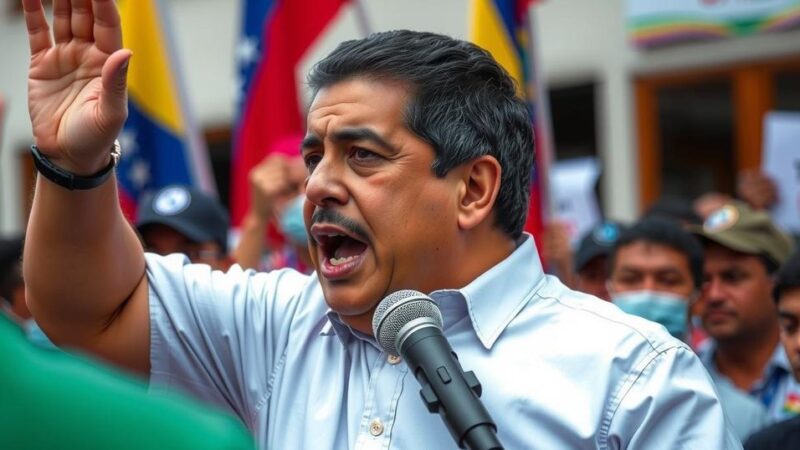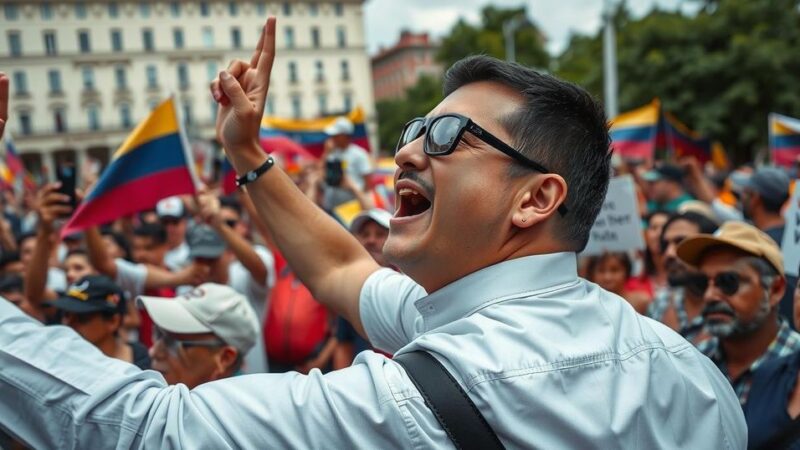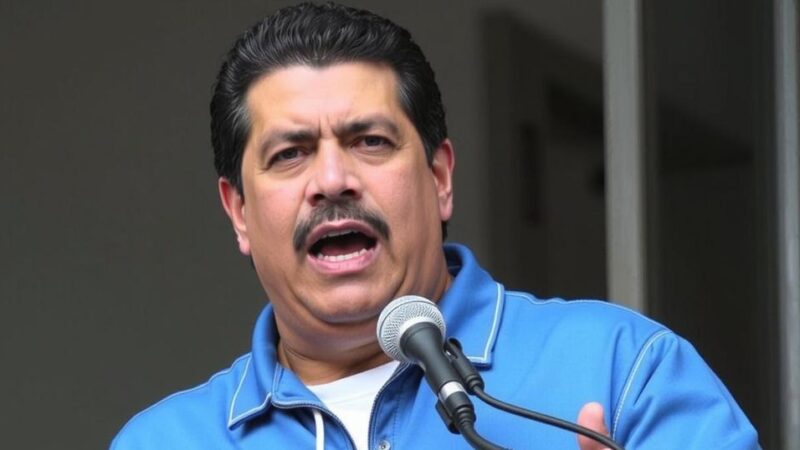Nicolás Maduro has been sworn in for a third term as president of Venezuela amid allegations of election fraud. His inauguration drew widespread international condemnation, particularly from Latin American leaders who boycotted the ceremony. Prominent opposition figures renew calls for resistance against Maduro’s regime as the political landscape remains fraught with tension and claims of illegitimacy.
Nicolás Maduro, the contentious president of Venezuela, has been sworn in for a third term amidst widespread condemnation for alleged electoral fraud. During a sparsely attended ceremony in Caracas, largely boycotted by global leaders, Maduro boasted of a supposed victory for Venezuelan democracy. Despite claims of legitimacy, he failed to provide evidence for his victory in the July elections, which his opponents assert were marred by significant irregularities favoring their candidate, Edmundo González.
The ceremony was attended by the presidents of Cuba and Nicaragua, while key Latin American leaders like Brazil’s Luíz Inácio Lula da Silva and Colombia’s Gustavo Petro opted to stay away in protest. In a lengthy speech, Maduro positioned himself as an anti-imperialist champion and disparaged his opponents, calling them “putrid fascists.” This defiance towards international criticism was echoed by Chile’s president Gabriel Boric, who labeled Maduro’s regime as a dictatorship.
U.S. Secretary of State Antony Blinken and the UK’s Foreign Secretary David Lammy condemned the inauguration, citing fraudulent elections and reaffirming their commitment to support democracy in Venezuela. The United Kingdom announced fresh sanctions against individuals tied to Maduro, while the U.S. increased its reward for information leading to the arrest of Maduro and his associates.
As Venezuelan leaders and citizens express their refusal to accept Maduro’s rule, prominent opposition figures like Juan Pablo Guanipa have called for non-violent resistance against his regime. Although many opposition leaders are either exiled or imprisoned, there remains a fervent desire for change among Venezuelans opposed to Maduro’s presidency, exemplifying the ongoing tension within the nation.
The political climate in Venezuela under Nicolás Maduro has been increasingly contentious since he first came to power in 2013. Following the 2024 presidential elections, which have been widely criticized for lacking fairness, Maduro’s claim to victory has sparked outrage both domestically and internationally. Evidence presented by opposition leaders suggests that the elections were fraudulent, contributing to widespread calls for change and condemnation from various governments around the world, including those traditionally aligned with leftist ideologies. This backdrop illustrates the struggle for democracy and governance in Venezuela amid an economic crisis.
In summary, Nicolás Maduro’s inauguration for a third term has ignited significant controversy surrounding his legitimacy as president, with both domestic and international figures decrying the actions taken by his government. Amidst claims of electoral fraud and the diminishing support from traditional allies, a commitment to resist his regime is gaining traction among opposition leaders and Venezuelan citizens. The future of Venezuela remains uncertain as the populace seeks to reclaim sovereignty and fight against authoritarianism.
Original Source: www.theguardian.com

